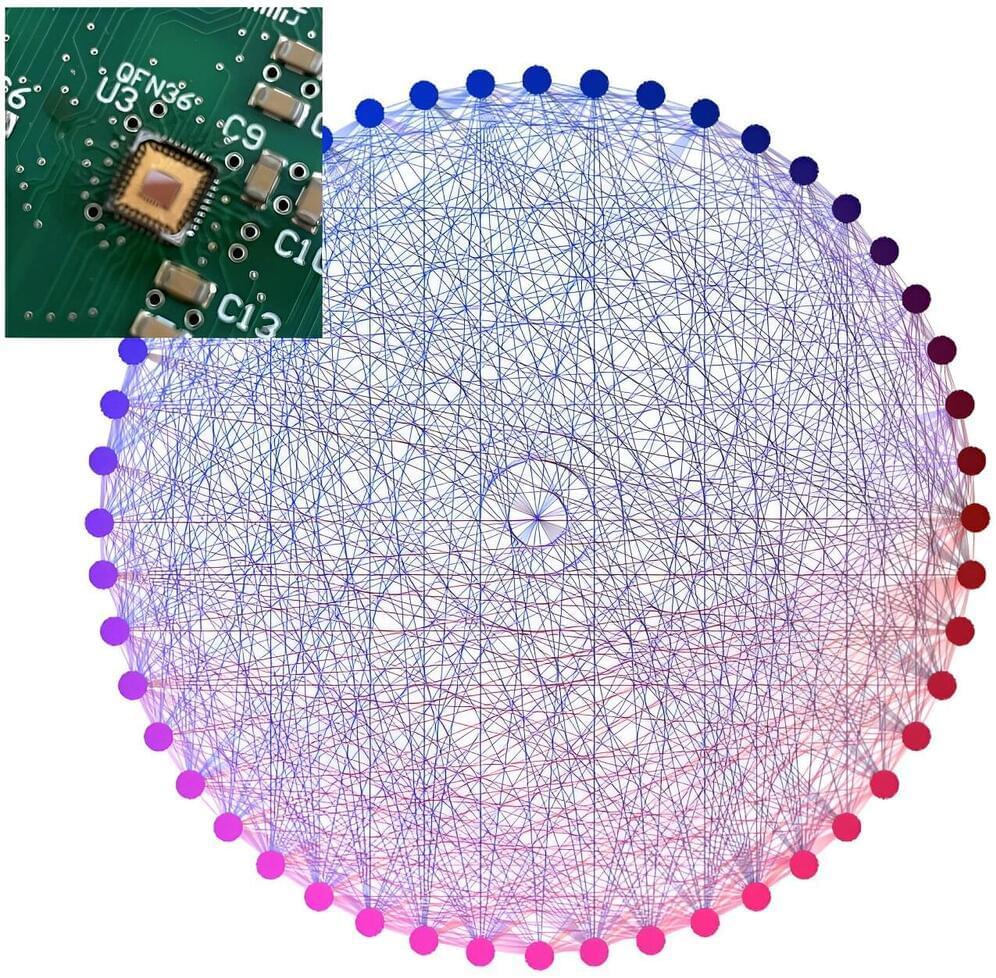Quantum computers, systems that perform computations by exploiting quantum mechanics phenomena, could help to efficiently tackle several complex tasks, including so-called combinatorial optimization problems. These are problems that entail identifying the optimal combination of variables among several options and under a series of constraints.
Quantum computers that can tackle these problems should be based on reliable hardware systems, which have an intricate all-to-all node connectivity. This connectivity ultimately allows graphs representing arbitrary dimensions of a problem to be directly mapped onto the computer hardware.
Researchers at University of Minnesota recently developed a new electronic device based on standard complementary metal oxide semiconductor (CMOS) technology that could support this crucial mapping process. This device, introduced in a paper in Nature Electronics, is a physics-based Ising solver comprised of coupled ring oscillators and an all-to-all node connected architecture.










Comments are closed.